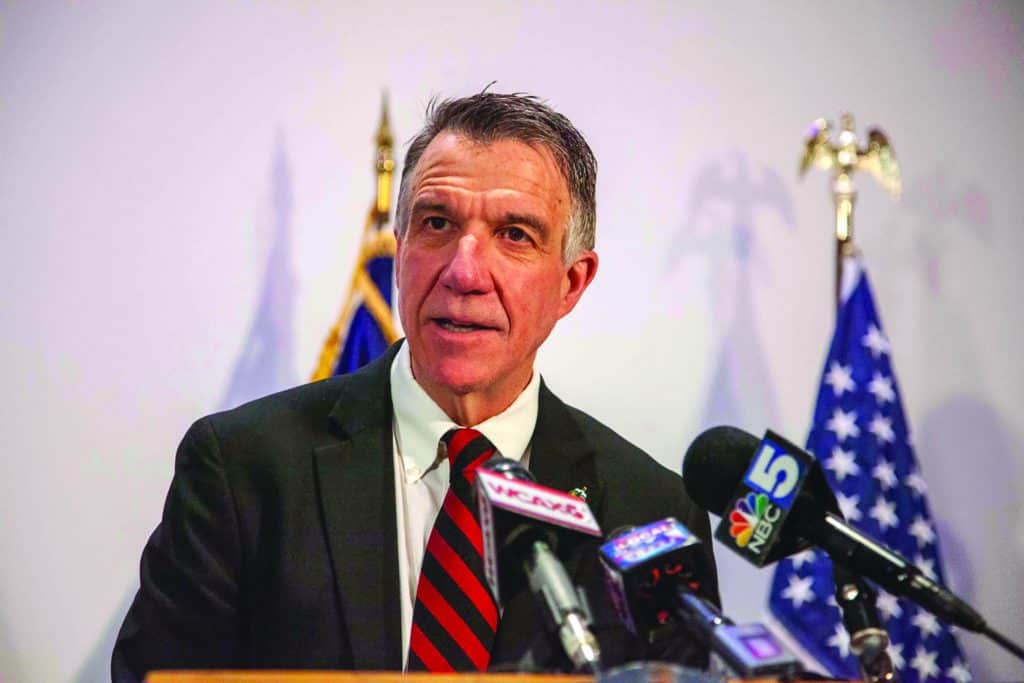
Signs executive order to manage recreational trails
Governor Phil Scott vetoed H.926, an act relating to changes to Act 250, and signed executive order to provide regulatory certainty for recreation trails on Monday, Oct. 5.
In his veto letter to the Legislature, Governor Scott noted that at the start of the legislative session, there was broad support for a comprehensive, balanced modernization package, but the bill the Legislature delivered falls far short.
“With this bill, the Legislature has created more regulatory uncertainty, not less. Our outdoor recreation economy, and the groups that help to maintain and preserve these networks, need a regulatory framework that is responsible, respectful and stable,” wrote Governor Scott. “Nothing in this bill modernizes or improves the Act 250 process — something that is widely agreed to be necessary after 50 years of existence,” the governor added.
Governor Scott’s executive order will advance provisions critical for Vermont’s recreational trails while awaiting further action on comprehensive Act 250 reform.
It directs the Agency of Natural Resources to begin a process to adopt a best management, practice-based program that can also facilitate compliance with Act 250 criteria should a trail network be required to obtain a permit; and to report back on any necessary legislative changes to promote high quality recreational trails that support the recreation economy.
“H.926 actually adds new regulation and new burdens to our recreational trail networks and recreation economy,” Scott wrote. “This bill does not improve or simplify the regulatory process or provide a permanent exemption for Vermont Trail Systems – something I proposed in 2019.
“H.926 ignores all the work and collaboration put into Act 250 reform and is counter to the important outcomes we collectively sought,” he said.
“In addition to failing to protect trails or strengthen the recreation economy, H.926 adds forest fragmentation regulation to the law which poses a new and significant problem for trail networks and the non-profit organizations that manage them. In particular, it affects the networks that rely on the help and cooperation of large forest landowners, such as the Vermont Association of Snow Travelers (VAST). In fact, VAST already reports landowners are considering removing their land from the trail network should this law be enacted,” Scott continued.
“I look forward to working alongside the Legislature with the goal of working toward truly comprehensive and thoughtful improvements to Act 250 during the next biennium,” he concluded in his letter to the Legislature.




